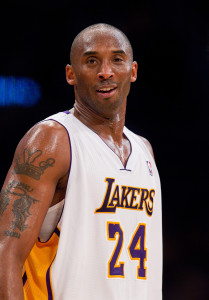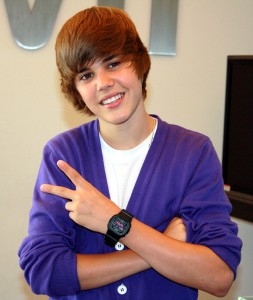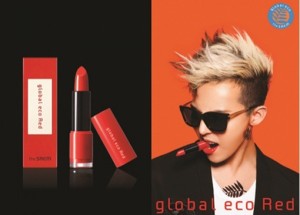 Before you think it, before you even go there, here’s a disclaimer. Though I’ll be speaking in very broad terms, I don’t speak for all men. I am purely speaking from my own point of view as a heterosexual male of my particular cultural context. This is in no way meant to attack or discredit the work of Nabeela’s Confessions of a Fangirl series. I very much appreciate the honesty of these pieces and find them very informational to say the least. And I’m sure there are those of us who have been curious to hear a male’s perspective on some of her topics, and so here it is, for better or for worse.
Before you think it, before you even go there, here’s a disclaimer. Though I’ll be speaking in very broad terms, I don’t speak for all men. I am purely speaking from my own point of view as a heterosexual male of my particular cultural context. This is in no way meant to attack or discredit the work of Nabeela’s Confessions of a Fangirl series. I very much appreciate the honesty of these pieces and find them very informational to say the least. And I’m sure there are those of us who have been curious to hear a male’s perspective on some of her topics, and so here it is, for better or for worse.
Guys do not experience the male equivalent of a girl crush. That is not to say guys don’t share an admiration for other guys, just not in the same way that girls “crush” on other girls. For lack of a better resource for a relatable definition, let’s examine the three tiers of girl crushing as laid out by Jenna Marbles in her video on “Girl Crushes.”
 The first tier definition describes more of a platonic relationship where the main attraction of the same-gender crush is his/her personality. It makes one want to be around this person, get to know him/her, and be genuine friends with. Both guys and girls can relate to this. Idols portray a wide variety of different personalities, particularly through interviews, variety, or acting, and some of these traits will just naturally click with some people. For instance, I wouldn’t mind hanging out with AJ of U-Kiss because when he is not performing, he seems like a regular nerdy college kid that I would just play video games with all day. Feeling such a platonic affection towards an idol is natural. We are drawn to those who we share similar interests and personalities with because we know right away that we can get along well with them. I wouldn’t call this so much a “crush” as it is a natural bond that forms between those who we share a common connection with.
The first tier definition describes more of a platonic relationship where the main attraction of the same-gender crush is his/her personality. It makes one want to be around this person, get to know him/her, and be genuine friends with. Both guys and girls can relate to this. Idols portray a wide variety of different personalities, particularly through interviews, variety, or acting, and some of these traits will just naturally click with some people. For instance, I wouldn’t mind hanging out with AJ of U-Kiss because when he is not performing, he seems like a regular nerdy college kid that I would just play video games with all day. Feeling such a platonic affection towards an idol is natural. We are drawn to those who we share similar interests and personalities with because we know right away that we can get along well with them. I wouldn’t call this so much a “crush” as it is a natural bond that forms between those who we share a common connection with.
This is where the similarities end. Jenna’s second tier definition describes an obsessive relationship rooted in envy. Statements such as “She is so hot; I want to be her” imply a feeling of desire where one wants to acquire the traits of a particular same-sex crush. This notion is exemplified to the point that one would actually consider transplanting one’s soul into the body of his/her favorite same-sex crush. Exaggeration or not, this is not an inherent feeling that I can empathize with.
 That is not to say that guys don’t envy other guys for their ideal traits; they just do so in a different way. In the world of sports fandom, consisting of nearly all male athletes performing for mostly male fans, the term “man crush” gets thrown around a lot. It describes the fondness a male fan shares for his favorite male athlete. The term is very similar to “girl crush” in that there is an implied sense of envy for the awesomeness of a particular person, but this envy is focused entirely around the male athlete’s abilities rather than his looks. For example, I have a man crush on Kobe Bryant because I admire his ability to score and play defense better than a large majority of basketball players in the world (and because he led my fantasy basketball team to a league championship this season). However, in no way do I actually want to take over his body and literally be him. Sure it would be great to acquire his fame, his wealth, and certainly his abilities, but that is as far as it goes.
That is not to say that guys don’t envy other guys for their ideal traits; they just do so in a different way. In the world of sports fandom, consisting of nearly all male athletes performing for mostly male fans, the term “man crush” gets thrown around a lot. It describes the fondness a male fan shares for his favorite male athlete. The term is very similar to “girl crush” in that there is an implied sense of envy for the awesomeness of a particular person, but this envy is focused entirely around the male athlete’s abilities rather than his looks. For example, I have a man crush on Kobe Bryant because I admire his ability to score and play defense better than a large majority of basketball players in the world (and because he led my fantasy basketball team to a league championship this season). However, in no way do I actually want to take over his body and literally be him. Sure it would be great to acquire his fame, his wealth, and certainly his abilities, but that is as far as it goes.
 A girl crush can be like a man crush, but the reverse is not applicable. Let me explain. A man crush is exclusive to one determinant factor – admiration over one’s abilities. A girl crush can be like a man crush in that a female may admire another female for her abilities. Nabeela cites the vocal abilities of Hyorin, Lee Hi, and Park Bom as a primary reason for her affection towards them. However, females tend to cite more than just abilities when describing a girl crush. Girl crushes are more inclusive in that, other than ability, the implication centers heavily on beauty. When females say that they want to literally be a particular female idol, they are partially expressing a desire to look like her – either in specific parts of the body or in the entire package.
A girl crush can be like a man crush, but the reverse is not applicable. Let me explain. A man crush is exclusive to one determinant factor – admiration over one’s abilities. A girl crush can be like a man crush in that a female may admire another female for her abilities. Nabeela cites the vocal abilities of Hyorin, Lee Hi, and Park Bom as a primary reason for her affection towards them. However, females tend to cite more than just abilities when describing a girl crush. Girl crushes are more inclusive in that, other than ability, the implication centers heavily on beauty. When females say that they want to literally be a particular female idol, they are partially expressing a desire to look like her – either in specific parts of the body or in the entire package.
(Disclaimer – I understand that the things I’m about to say from here on may be incorrect assumptions based on cultural dissimilarities, and that some of it may even come off as ethnocentric, so please bear with me. I also apologize in advance if I am not applying the appropriate qualifiers with every statement.)
The reverse is not true for men. Heterosexual guys, at least the ones I know, do not aspire to look like male idols. Guys are not running to the nearest makeup store for eyeliner and they certainly do not fashion their hair to be so colorful and aesthetically bewildering. In fact, guys tend to stigmatize other guys who become sexualized or visually prepared for the viewing pleasure of women.
 Take Justin Bieber for example. He is pretty much the American equivalent of an idol. He has a mostly female fanbase, he sings sappy pop songs directed at women, and he is as every bit manufactured as any K-pop act. Men hate Justin Bieber. “Gay,” “pussy,” and “pretty boy” are only a few of the many slurs that are thrown at poor Bieber just because his image is so aesthetically pleasing towards women. That is because men do not have much tolerance towards the sexualization of other men.
Take Justin Bieber for example. He is pretty much the American equivalent of an idol. He has a mostly female fanbase, he sings sappy pop songs directed at women, and he is as every bit manufactured as any K-pop act. Men hate Justin Bieber. “Gay,” “pussy,” and “pretty boy” are only a few of the many slurs that are thrown at poor Bieber just because his image is so aesthetically pleasing towards women. That is because men do not have much tolerance towards the sexualization of other men.
In the society that we live in, many traits are divided into being labeled as either “feminine” or “masculine.” Under this dichotomy, there is very little room for gender splicing. To be feminine is to not be masculine and to be masculine is to not be feminine. However, since women desire male partners who are not afraid to express feminine traits, male entertainers embody such traits to be the ideal love interest for female consumers. Men do not take kindly to these male idols because to approve of them would be to acknowledge and accept that guys too have a feminine side, and thus they risk being viewed as “unmanly.” On the other hand, by degrading these male idols using slurs that question their manhood, guys become validated and reassured in their own masculinity.
 Women, however, tend to do the opposite. The reason it’s perfectly fine for women to condone and uphold the sexualization of other women is because the hyper-sexualization of the female body has been normalized in our subconscious through the massive bombardment of media advertising in our everyday lives. Due to the endless barrage of images containing overtly sexualized females in all forms of mass media, women are taught from an early age that the most valuable thing about them is their bodies, and that in order for their bodies to convey value, they must possess all of the ABCs of ideal beauty. Hence, the feeling of envy is inevitable when female idols are surgically enhanced, airbrushed, and photoshopped to fill out the x, y, and z definitions of standard beauty.
Women, however, tend to do the opposite. The reason it’s perfectly fine for women to condone and uphold the sexualization of other women is because the hyper-sexualization of the female body has been normalized in our subconscious through the massive bombardment of media advertising in our everyday lives. Due to the endless barrage of images containing overtly sexualized females in all forms of mass media, women are taught from an early age that the most valuable thing about them is their bodies, and that in order for their bodies to convey value, they must possess all of the ABCs of ideal beauty. Hence, the feeling of envy is inevitable when female idols are surgically enhanced, airbrushed, and photoshopped to fill out the x, y, and z definitions of standard beauty.
 This is not to say that guys are completely free from being sexualized or objectified by mass media. Men, like women, face a similar subconscious effect in which they secretly wish they had the washboard abs of Jay Park and the stylistic swag of G-Dragon. However, patriarchic societies provide men the structural benefit to gain value through other outlets and encourage them to obtain their worth in other ways. Most importantly, society is not endorsing the idea that a man’s body is his most important asset. Men aren’t rushing to get the latest G-Dragon endorsed red lipstick. That’s because many men feel that their looks are not an essential contributor to their self worth. In fact, I know many straight guys who are highly adverse to the idea of improving their physical appearance for the sake of getting ahead or even attracting a woman.
This is not to say that guys are completely free from being sexualized or objectified by mass media. Men, like women, face a similar subconscious effect in which they secretly wish they had the washboard abs of Jay Park and the stylistic swag of G-Dragon. However, patriarchic societies provide men the structural benefit to gain value through other outlets and encourage them to obtain their worth in other ways. Most importantly, society is not endorsing the idea that a man’s body is his most important asset. Men aren’t rushing to get the latest G-Dragon endorsed red lipstick. That’s because many men feel that their looks are not an essential contributor to their self worth. In fact, I know many straight guys who are highly adverse to the idea of improving their physical appearance for the sake of getting ahead or even attracting a woman.
Just to recap: the ability to dunk a basketball – masculine and manly; putting on some deodorant for a first date – feminine and gay.
 It is with fresh eyes that we investigate Jenna’s third tier definition of a girl crush – the homoerotic desire to be in a sexual or romantic relationship with the same-sex crush. While this definition was most likely constructed for the sake of sensationalism, it reinforces the notion that the sexualization of women is not only normal and acceptable, but it’s also a tool meant to be wielded to attract the attention of men. Heterosexual women, by definition, aren’t into sexual or romantic relationships with other women. The “I kissed a girl and I liked it” tactic is yet another example of how women put themselves through an uncomfortable procedure (in addition to those which are cosmetic or surgical) in order to promote their sexual desirability in the eyes of men.
It is with fresh eyes that we investigate Jenna’s third tier definition of a girl crush – the homoerotic desire to be in a sexual or romantic relationship with the same-sex crush. While this definition was most likely constructed for the sake of sensationalism, it reinforces the notion that the sexualization of women is not only normal and acceptable, but it’s also a tool meant to be wielded to attract the attention of men. Heterosexual women, by definition, aren’t into sexual or romantic relationships with other women. The “I kissed a girl and I liked it” tactic is yet another example of how women put themselves through an uncomfortable procedure (in addition to those which are cosmetic or surgical) in order to promote their sexual desirability in the eyes of men.
I’m going to end with one last disclaimer. I do not speak for all men and do not intend to. My assumptions about the tendencies of both genders are those of my own. This is my personal perspective and a lot of it has been gathered from the resources provided below. I highly encourage both men and women to engage in discussion and to share their own point of views on the matter. Please check out the links to the resources cited below for more informed and better articulated inquiries into the issues I’ve brought up.
Seoulmates, what are your thoughts?
(linzerdinertv, Feminist Frequency, Jean Kilbourne, Images via TS Entertainment, Nylon Magazine, @JSK91AJ, Jeff Lewis Photography, YG Entertainment, Global Eco Red, Capitol Music Group)


